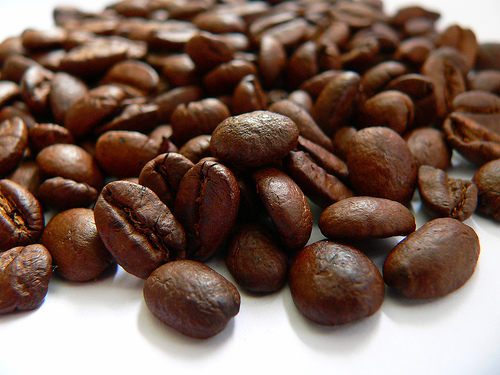Caffeine intake during pregnancy
 Cas No. [58-08-2]
Despite its widespread use and the conventional view that it is a
safe substance, a 2008 study suggested that pregnant women who
consume 200 milligrams or more of caffeine per day have about twice
the miscarriage risk as women who consume none. However, another
2008 study found no correlation between miscarriage and caffeine
consumption. The UK Food Standards Agency has recommended that
pregnant women should limit their caffeine intake to less than 200
mg of caffeine a day – the equivalent of two cups of instant coffee
or a half to two cups of fresh coffee. The FSA noted that the design
of the studies made it impossible to be certain that the differences
were due to caffeine per se, instead of other lifestyle differences
possibly associated with high levels of caffeine consumption, but
judged the advice to be prudent.
Dr De-Kun Li of Kaiser Permanente Division of Research, writing in
the American Journal of Obstetrics and Gynecology, concluded that an
intake of 200 milligrams or more per day, representing two or more
cups, "significantly increases the risk of miscarriage". However,
Dr. David Savitz, a professor in community and preventive medicine
at New York's Mount Sinai School of Medicine and lead author of the
other new study on the subject published in the January issue of
Epidemiology, found no link between miscarriage and caffeine
consumption.
Genetics and caffeine metabolism
A 2006 study by Dr. Ahmed El-Sohemy at the University of Toronto
discovered a link between a gene affecting caffeine metabolism and
the effects of coffee on health. Some people metabolize caffeine
more slowly than the general population due to variations in a
specific cytochrome P450 gene, and there is evidence people with
this gene may be at a higher risk of myocardial infarction when
consuming large amounts of coffee. For rapid metabolizers, however,
coffee seemed to have a preventative effect. Slow and fast
metabolizers are comparably common in the general population, and
this has been blamed for the wide variation in studies of the health
effects of caffeine.
Intraocular Pressure and caffeine
Recent data has suggested that caffeine consumption can raise
intraocular pressure. This may be a significant consideration for
those with open angle glaucoma.

>>
New Product
Introduced :
Oseltamivir Phosphate,
Phenyl Propanolamine,
Phenylephrine,
Etafedrine

|

 We all know that one of the most powerful chemical compounds found
in both coffee and tea is caffeine. Has caffeine become an important
part of your daily life? Did you know
We all know that one of the most powerful chemical compounds found
in both coffee and tea is caffeine. Has caffeine become an important
part of your daily life? Did you know
Article : What Is Caffeine?
 Caffeine is a drug that is naturally produced in the leaves and
seeds of many plants. It's also produced artificially and added to
certain foods. Caffeine is defined as a drug because it stimulates
the central nervous system, causing increased alertness. Caffeine
gives most people a temporary energy boost and elevates mood.
Caffeine is a drug that is naturally produced in the leaves and
seeds of many plants. It's also produced artificially and added to
certain foods. Caffeine is defined as a drug because it stimulates
the central nervous system, causing increased alertness. Caffeine
gives most people a temporary energy boost and elevates mood.
Caffeine is in tea, coffee, chocolate, many soft drinks, and pain
relievers and other over-the-counter medications. In its natural
form, caffeine tastes very bitter. But most caffeinated drinks have
gone through enough processing to camouflage the bitter taste.
Teens usually get most of their caffeine from soft drinks and energy
drinks. (In addition to caffeine, these also can have added sugar
and artificial flavors.) Caffeine is not stored in the body, but you
may feel its effects for up to 6 hours.
![Caffeine Cas No. [58-08-2]](caffeine/CAFFEINE%20LOGO%20SMALL.bmp)
|


